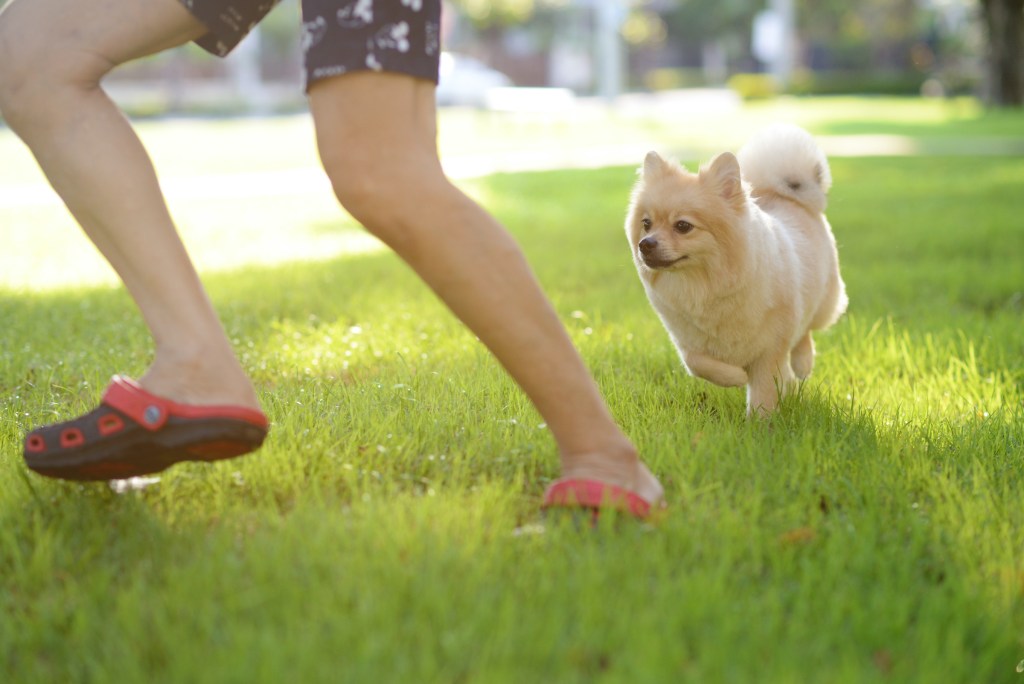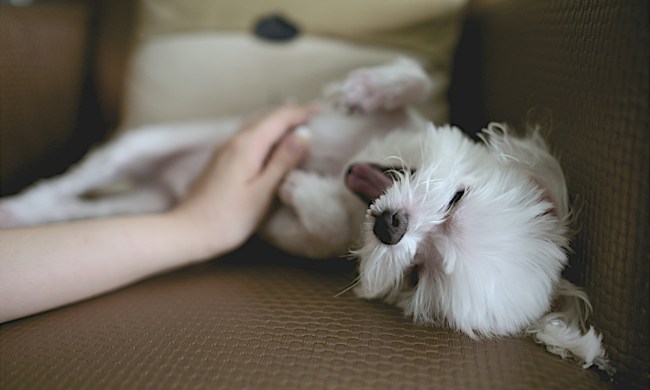“My cocker spaniel and I have always been close, but lately, she has been nearly glued to my hip. Even if I don’t leave the room, my dog can’t stand to be away from me. Why does my dog follow me everywhere? Should I be worried?”
If you can relate to concerns like this, this article is for you. Many pet parents have lived with an extra-clingy fur baby just like yours, so there’s no shortage of advice or information. Of course, your veterinarian is your best contact if you’re worried about your dog’s behavior — especially if anything changes suddenly — but clinginess isn’t automatically a cause for concern. Here’s what you need to know.
Is it bad if your dog follows you everywhere?
There are a handful of reasons why your pup may stick to you like velcro, but most of them are not a cause for great concern. It may get annoying, though, especially if it’s constant, so you may want to find and address the reason why your dog follows you everywhere.
Keep an eye out for any other changes in your dog’s behavior — especially sudden ones — as these could be a sign of something more concerning: an injury, illness, or psychological stress. Don’t wait to let your veterinarian know if something doesn’t seem right.
The Kennel Club of the UK suggests that you may also want to contact a canine behavior specialist to get some advice on helping your pup build confidence and independence. There’s nothing wrong with being close to your dog (literally), but helping her learn to be all right on her own will prevent additional stress like separation anxiety.

Why does my dog follow me around the house?
As you now know, a dog can get clingy when they’re dealing with an illness or injury, and their short distance may be their way of trying to tell you. If your pup’s exhibiting a new behavior, it’s worth giving her a thorough look over to make sure nothing is amiss.
Here are a few other reasons your dog may be acting as your new shadow, according to The Kennel Club of the UK:
- Your dog is bored.
- She wants to know what’s going on.
- Your pup loves you or has “imprinted” on you.
- She feels safe with you.
- Your dog has positive associations with following you.
- She’s waiting on a snack, walk, or playtime.
- She wants to tell you something.
- Your dog is stressed.
Dogs are curious and social creatures, so their nosy behavior may be completely innocent. Whether they’re just bored, interested in what you’re doing, or worried about being left out of a good time, your four-legged friend could just be following her natural instincts. Because dogs are pack animals, she may follow your lead if she sees you as her leader, provider, or even just friend.
If something new or stressful is going on, your pup may get clingy for comfort’s sake. This is probably what’s going on if your dog follows you around while guests are over, or while you’re visiting somewhere new.
Most canines are creatures of habit, so it’s possible that your buddy is just waiting for her next meal or potty break. Luckily, all it takes to rule this one out is a glance at the clock. If your dog is trying to tell you something else, however, you may need to work a little harder to figure out what it is. Does your dog tend to get cold? Is her water bowl running low?
How do you tell if a dog has imprinted on you?
Although the concept of imprinting is widely observed in the animal kingdom, it isn’t always considered when it comes to pets. The truth is, though, imprinting in dogs looks like an extra-close bond, often with someone who cares for them while they’re young.
The American Kennel Club (AKC) explains it this way: A young dog learns to view a caretaker as their mother, which strengthens their bond whether or not the caretaker is aware. A rescue dog can imprint on a new owner later in life than most pups due to inconsistent care early in life, so you may notice this with your shelter-adopted pets.
Your dog may have imprinted on you if you notice her following you or even attempting to copy your actions. When a dog imprints, they use the relationship as an educational resource: They look to their parent figure to learn how to act and interact. That’s not to say that a dog will think they’re a person if they imprint with a human, but that their bond may be a lot deeper than you think.
Don’t worry too much about your dog being your shadow
With all this new information, you’re well on your way to learning why your dog is your second shadow. Who knows — it may be more obvious than you think! It’s up to you to decide whether her attachment is appropriate and healthy, though every pet parent is bound to want some space now and again (and that’s OK). Luckily, if you decide to make a change, there are many training methods to help your pup gain confidence and, eventually, independence.




